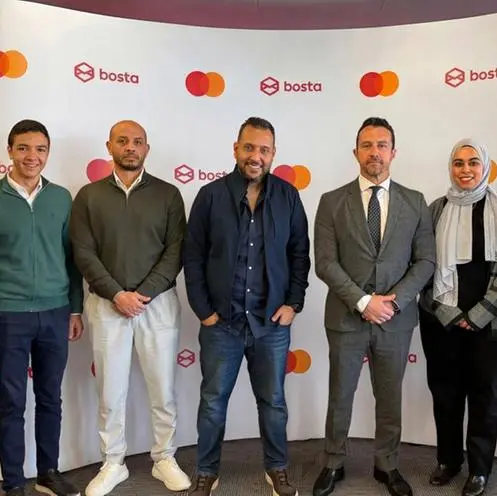- AGFE recommends that universities in the region learn from Emergency Remote Teaching (ERT) while recognizing that it is a unique experience, simultaneously re-designing course content for long-term quality online learning.
Dubai: The Abdulla Al Ghurair Foundation for Education (AGFE) has revealed their latest policy brief presenting the implications of emergency remote teaching (ERT), the immediate transition from face-to-face learning to online learning in an emergency context, for students across the region, due to the Covid-19 pandemic. Based on a survey conducted earlier this year of over 400 scholars of the Abdulla Al Ghurair Foundation for Education’s (AGFE) two scholarship programs, the policy brief lays out recommendations for universities and regulatory authorities in the region. These aim to help them prepare for future uncertainties in the upcoming academic year(s).
AGFE has two need and merit-based full scholarship programs serving 806 Arab youth. The survey reveals key findings from the experience of both the Al Ghurair STEM scholars who had to transition to online learning because of the Covid-19 pandemic as well as those in the Al Ghurair Open Learning Scholars Program (OLSP), who were studying online prior to the Covid-19 pandemic. The former supports high-achieving disadvantaged Arab youth enrolled in STEM undergraduate and master’s degrees at one of the Foundation’s 15 partner universities. The latter serves similar students pursuing master’s degrees online at Arizona State University. Most of AGFE’s STEM scholars rated their online learning experience as average (62.2%), and only 16.2% rated their experience as good.
When asked about what their key challenges were while studying online the respondents recorded lack of peer interaction (57%), lack of motivation (56%), and weak internet connection (52%) as their main areas of concern. Yet, despite the negative change in perception and the various challenges faced while studying online, more than half of the scholars (53%) reported still being open to online learning in the future.
Dr. Sonia Ben Jaafar, CEO of AGFE, said: “More than 13 million Arab university students had to transition from face-to-face learning to online learning, almost overnight, when the Covid-19 pandemic hit in March 2020. Because of this, we have witnessed an unfortunate, yet not surprising struggle, with 27% of the scholars sharing that the transition has left them feeling anxious and uncertain about the future. Before this took place, many universities in the region had very limited or no prior experience with formal online education, and governments were hesitant to fully accredit this model of learning.
“Education for an elevated livelihood is our mission at AGFE. This demands a collective effort that focuses on enhancing blended and online learning models for the sustainable development of the Arab region. That is why we are recommending that universities and regulatory authorities work collaboratively on building up key components to make online learning a success, including the support systems needed to transition from the temporary phase of ERT to quality online learning in the long-term.”
The survey also found that scholars studying in universities based in the Arab region were more likely to struggle understanding lectures online compared to their peers studying abroad. Around 34% of them reported not fully understanding lectures online compared to 20% of scholars studying in partner universities in the United States, Canada, and Turkey.
Based on the findings, below are the AGFE Policy Brief recommendations for universities and regulatory authorities:
For Universities
- Learn from Emergency Remote Teaching (ERT) while recognizing that it is a unique experience: Understanding and learning from ERT for all stakeholders involved by conducting an evaluation is critical. Universities may be tempted to compare student outcomes in ERT to those of face-to-face teaching and learning. However, there are multiple factors that make the ERT experience different, including context, inputs and processes. It is important to remain cautious when drawing conclusions about the value of teaching and learning online based on this unique experience.
- Support faculty to (re)design and develop quality online courses:
- Engage instructional designers in (re)designing course content for the online learner. Instructional design, which involves the design, development, and delivery of content to improve learning, is an expertise that is largely lacking in the Arab region. In collaboration with faculty, these specialists ensure that instruction is student-centered, outcome-based, and engaging.
- Provide specialized training to faculty. Most faculty in the region have limited prior experience in online learning. As with most universities globally, many also do not have training in pedagogy. Universities should develop and offer practical and workplace training programs that teach faculty to redesign their courses and avoid making basic adaptations to their face-to-face courses to fit an online environment.
- Closely monitor access to and engagement in online learning: Technology, reliable access to internet, and lack of student inter- action are key barriers to student access and success in an online environment, particularly among disadvantaged populations. Universities should introduce solutions to reduce the digital divide, including providing better technical support for all, making course content available offline and identifying low-tech tools for student engagement.
- Provide comprehensive student support: All successful online programs are rooted in strong student support (academic, technical, personal, and mental health). It will become critical to transition these services online and ensure their effectiveness. In the case of mental health, a service that is lacking even on campuses, it is especially important to identify students at risk, increase help seeking behaviors, promote social connectedness, and support the development of life skills.
For Regulatory Authorities
- Accredit high quality online learning programs. Regulatory authorities should capitalize on the current opportunity to recognize online learning as an equivalent educational model to the face-to-face experience. The lack of accreditation policies for online learning has perhaps been one of the biggest factors holding back universities from offering online degree programs in the Arab region. This is an opportunity to assure that online learning in the region will be of high quality by developing clear guidelines and frameworks for accrediting online programs that, like traditional accreditation guidelines, are focused on learning outcomes rather than the modality.
- Include comprehensive student support as part of quality assurance standards. Quality assurance standards should include a requirement that universities provide their students enrolled in online programs access not only to technical support, but to the whole spectrum of services that are found on campus and that are central to students’ success. Students who study online should have access to the same essential support services as students in face-to-face academic programs. The range of support services that facilitate success include careers and employability, mentoring, and mental health.
There are 806 Arab youth that benefit from the Al Ghurair STEM Scholars Program and Open Learning Scholars Programs (OLSP). Both programs are comprehensive, offering both financial and non-financial support to scholars.
-Ends-
ABOUT THE ABDULLA AL GHURAIR FOUNDATION FOR EDUCATION
AGFE aims to empower Emirati and Arab youth to thrive and contribute to the sustainable development of the region, through innovative education solutions and authentic partnerships. As one of the largest privately funded philanthropic foundations in the Arab region, AGFE supports the provision of high-quality technology-based education opportunities, as well as the development of relevant skills for a successful transition into higher education and the labor market. Founded in 2015, the Foundation is dedicated to the realization of the United Nations Sustainable Development Goals 4 and 8, calling for inclusive and equitable quality education that leads to improved standards of living for all.
For more information, please contact Olfa Abidi on oabidi@alghurairfoundation.org
You can also visit: www.alghurairfoundation.org
For more information, please contact:
Holly Wallace
holly@definitionagency.com
© Press Release 2020
Disclaimer: The contents of this press release was provided from an external third party provider. This website is not responsible for, and does not control, such external content. This content is provided on an “as is” and “as available” basis and has not been edited in any way. Neither this website nor our affiliates guarantee the accuracy of or endorse the views or opinions expressed in this press release.
The press release is provided for informational purposes only. The content does not provide tax, legal or investment advice or opinion regarding the suitability, value or profitability of any particular security, portfolio or investment strategy. Neither this website nor our affiliates shall be liable for any errors or inaccuracies in the content, or for any actions taken by you in reliance thereon. You expressly agree that your use of the information within this article is at your sole risk.
To the fullest extent permitted by applicable law, this website, its parent company, its subsidiaries, its affiliates and the respective shareholders, directors, officers, employees, agents, advertisers, content providers and licensors will not be liable (jointly or severally) to you for any direct, indirect, consequential, special, incidental, punitive or exemplary damages, including without limitation, lost profits, lost savings and lost revenues, whether in negligence, tort, contract or any other theory of liability, even if the parties have been advised of the possibility or could have foreseen any such damages.



















